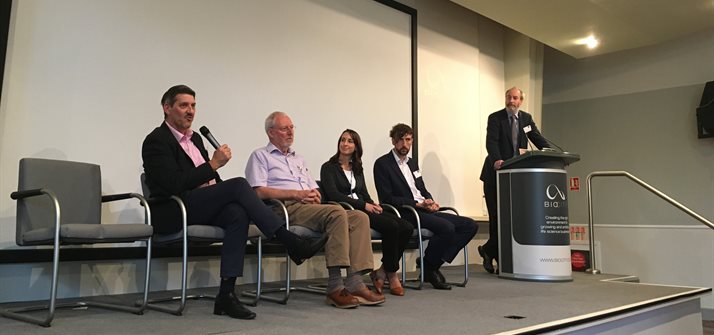Design and Manufacture of Medical Devices

October 10th, BioCity, Nottingham
In collaboration with Medilink East Midlands, the Centre for Healthcare Technologies hosted an event which explored a range of technological developments and wider considerations in the design and manufacture of medical devices.
Chaired by Dr Ruth Goodridge, the event explored
- bringing together the right team
- expert experience of how to bring devices to market (Dr Stephen Knowles, IDC Ltd)
- user-centric design: patient involvement (Matthew Theobald, Three Circles Ltd)
- user-centric design: human factors (Kate Frost, Head of PPI at Nottingham University Hospitals NHS Trust)
- advances in manufacturing techniques and (Dr Joel Segal, University of Nottingham)
- case studies of the development of successful products (Prof Roger Bayston and Prof Donal McNally, University of Nottingham)
- Presentations are available at https://www.medilinkem.com/event/7229/
In a vibrant panel discussion involving Nick Brown (EMAHSN), Beth Beeson (CHEATA), Stephen Knowles, Roger Bayston and chaired by Donal McNally, the panellists answered a host of audience questions about the wider considerations of bringing devices to market.
Key talking points included:
Real world evidence is more important than clinical trials as people don't behave in the same way outside the controlled and observed environment.
When designing a device, make sure you know what standards are required. Don't wait too long before documenting your design decisions and reasons - it is much easier to do this as you go along rather than retrospectively.
Speak to potential distributors - they know the route to market and have a number of people speaking to buyers. They know what is needed and can market for you.
How do you sell to the NHS?
A healthcare commissioner isn't so much interested in the technical solution, they want to understand why they should buy it. What problem is it solving? What pressure point is it relieving? What cost can it save eg in staffing or reduced activity? The key is to understand the pathway and what you can remove.
CHEATA can check the clinical pathway and assess the evidence needed to sell your product to the NHS. It's not a one-size-fits-all challenge. CHEATA can identify what each manufacturer needs to get its product through the NHS door. What is the value proposition?
The NHS doesn't always adopt after other healthcare providers - for Roger Bayston's catheters, they were taken up first by the NHS. NIHR funding in particular can lead to a small-scale study in one NHS centre which is a foot in the door for further uptake.
The NHS used to be more risk-averse, but it's changing
Speak to multiple clinicians to get a variety of views on how treatment is done differently
Try to get a clinical champion as they can help sell your product internally
This event was held as part of the INSTILS project, part-funded by the European Regional Development Fund.
